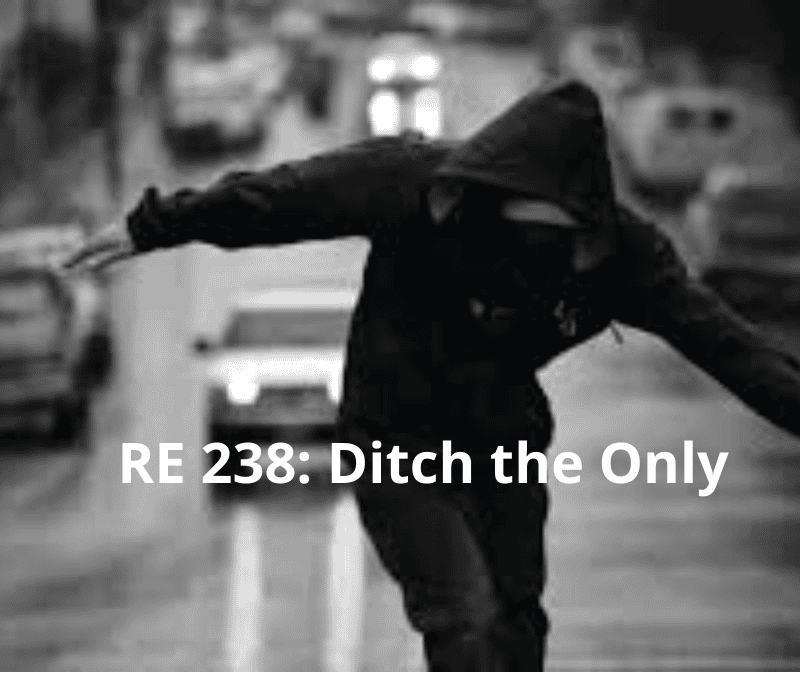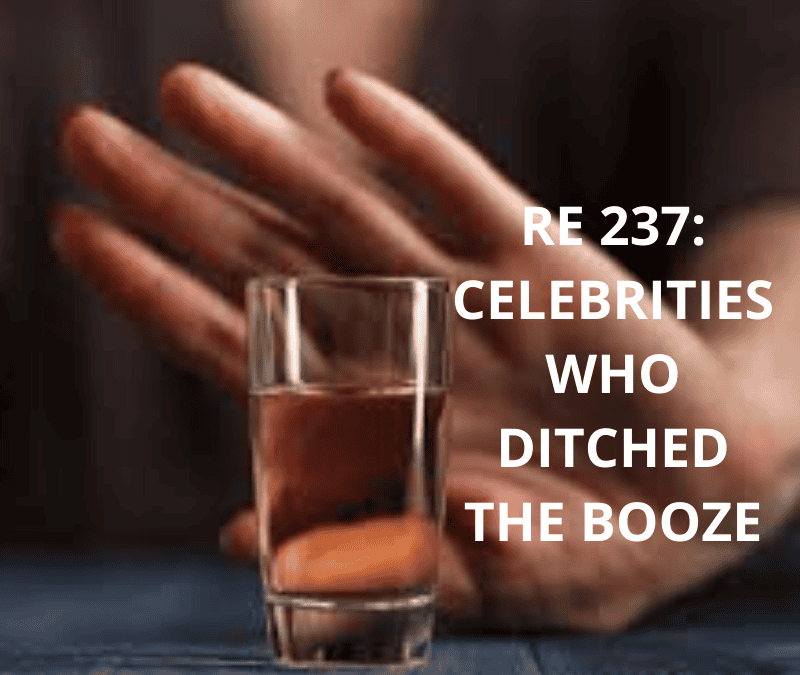
by Paul Churchill | Sep 16, 2019 | Podcast
Podcast: Play in new window | Download
Subscribe to the Recovery Elevator Podcast Apple Podcasts | | More
Dan took his last drink 370 days ago. This is his story.
Update on the Alcohol is Sh!t book! The book is out! Pick up your copy on Amazon here!
On today’s episode Paul talks about how this journey into a new life without alcohol can be fun. In fact, he says, it must be fun. If you’re not having fun right now that is ok, you are not doing anything wrong. Recovering your true self, a life filled with inner joy and abundance, can only be done with love. You can’t fight darkness with darkness.
Here are some strategies to invite love into your life…stop comparing yourself to others, get off social media, tell yourself ‘I love you’, listen to your body, put on headphones and dance.
SHOW NOTES
[9:30] Paul introduces Dan.
Dan celebrated 1 year of sobriety on July 28, 2019. He is 37 years old and lives in Cottage Grove, MN. He is a teacher and teaches middle school math. He has 5-year-old twins, a boy and a girl, and a 10-year-old daughter. Dan is married and they just celebrated 13 years. For fun Dan likes to exercise and hike.
[16:20] Give us a background on your drinking.
Dan had his first drink in high school and bartended through college. He says his drinking just carried over into what he calls ‘his adult life’ and it just stuck with him. He wasn’t a binge drinker; it was more of cracking a couple beers open every night after work.
Dan started to become depressed, getting anxious if he couldn’t drink his beers each night. He says he had some suicidal thoughts.
[20:45] What did that depression feel like?
Dan got to the point where he was finding no joy in anything, including alcohol, his job or his family. He confided in a friend about his depression and that was the start of his journey into sobriety. When he confided in his wife, he felt that he was surrendering and ready to get help.
[24:00] When did you tell your wife and what happened after that?
Dan says he made the commitment to stop drinking last summer and told his wife after about a week in. Dan says his wife overheard him listening to the Recovery Elevator podcast and that was the beginning of their conversation about his drinking and depression.
[26:35] Talk to us about the 1st week, the 1st month.
Dan made a doctor’s appointment a couple weeks in to talk about his depression and was prescribed anti-depressants/antianxiety medication. He was worried about how he would feel once taking the medication but says it has really helped him. Dan listened to the RE podcasts daily and would reach out to his wife when he was struggling at all. He also told his oldest daughter that he was quitting drinking alcohol.
[35:30] With a year away from the alcohol how has the depression been?
Dan says it has gotten better. He is going to sit down with his doctor and discuss if he should come off the meds, he says he was scared to go on them in the beginning and is now a little worried about coming off them.
[37:25] What’s on your bucket list now with a year of sobriety?
Next summer he’s going to finish up the Superior Hiking Trail and possibly do a ½ marathon.
[38:44] You haven’t mentioned AA or 12-step, did you not go to AA during this last year?
Dan says he never put it out of his mind or took it off the table, and that he even looked up when and where meetings were; but that he never went to a meeting.
[40:40] Rapid Fire Round
- What’s a lightbulb moment you’ve found on this journey?
My lightbulb moment was that I needed to fail a few times before I was actually able to be successful with it.
- What is a gift that sobriety has given you?
The biggest gift is time.
- What is your favorite alcohol-free drink?
Well my beer fridge has now became a sparkling water fridge.
- What are some of your favorite resources in recovery?
I definitely have to say Recovery Elevator, plus my friends and my family.
- And what parting piece of guidance can you give to listeners?
It would have to be that there is so much freedom once you have given up alcohol.
- You might have a drinking problem if…
You have a fight with your girlfriend, decide to move out, and realize that you have only packed a camera and a swimsuit.
Upcoming retreats:
Asia Adventure – January 20-31, 2020
You can find more information about this event here
Resources mentioned in this episode:
Connect with Cafe RE– Use the promo code OPPORTUNITY for your first month free
Sobriety Tracker iTunes
Sobriety Tracker Android
Sober Selfies! – Send your Sober Selfie and your Success Story to info@recoveryelevator.com
“Recovery Elevator – It all starts from the inside out.”

by Paul Churchill | Sep 9, 2019 | Podcast
Podcast: Play in new window | Download
Subscribe to the Recovery Elevator Podcast Apple Podcasts | | More
Brandi took her last drink on July 17, 2019. This is her story.
Update on the Alcohol is Sh!t book! The book was released 2 days ago! Pick up your copy on Amazon here!
On today’s episode Paul talks about one of his pet peeves…the word “ONLY”. For example, when someone says they have ‘only’ been sober for 3 days, 10 days, 2 weeks, etc.… We need to change this way of thinking, any amount of time away from alcohol is a major win.
The word ‘only’ equals limited, represents a lack of, and we want to be careful with this idea and energetic vibrations that encompass the word.
SHOW NOTES
[9:30] Paul introduces Brandi.
Brandi is from Franklin, TN. She is 48 years old and works in healthcare. She has a 12-year-old daughter and for fun Brandi likes to make her own greeting cards, write poetry, and ride horses.
[14:50] Give us a background on your drinking.
Brandi says she drank some in high school and college, but that she didn’t really enjoy it. She says it wasn’t until she was 33-34 years old that she started to see alcohol as a problem.
In 2012 she started to notice how alcohol was impacting her life, her physical wellbeing, her job, and the people around her. 2 years ago, she was drinking about 2 bottles of wine a night, every day.
[23:00] Where do you think your self-loathing came from?
Brandi says it came from a lot of things; missed moments with her daughter; lost time; missed conversations.
[33:30] Tell us how the last 2 weeks have been?
Brandi says they have been good. She felt a little of the pink cloud. She’s been trying to do things differently, like getting up earlier. She started a morning routine that includes her affirmation books.
[39:00] What’s your plan moving forward?
Brandi says she is going to be better at reaching out to people. She plans on getting back to some meetings that she has gone to in the past. Getting back to her morning routine. She wants to slowly get back to the things she enjoys doing for fun. Brandi says a big one for her is stepping outside her comfort zone.
[40:40] Rapid Fire Round
- What’s a lightbulb moment you’ve found on this journey?
How many times have I thrown wine glasses away.
- What is a memorable moment that sobriety has given you?
Sitting with my daughter, watching Disney movies, just being goofy and she put on Elton John and we just started dancing.
- What is your favorite alcohol-free drink?
Unfortunately, it’s Diet Dr. Pepper, but lemonade takes a close 2nd.
- What are some of your favorite resources in recovery?
My friends that know me, my affirmation books.
- What’s on your bucket list in an alcohol-free life?
I used to travel; I want to go find a really cool place to take my daughter. I want to do the things I used to do with her and start making memories. Also, to get back into making my cards again and moving forward with dreams I had at making that part of my lifestyle.
- And what parting piece of guidance can you give to listeners?
Even if it’s hard to step out, to reach out, it doesn’t have to be huge, just that one little thing that will change your path.
- You might have a drinking problem if…
Before you buy that next bottle of wine you have to figure out where you are in your rounds through your wine stores so you don’t hit one too soon.
Upcoming retreats:
Asia Adventure – January 20-31, 2020
You can find more information about this event here
Resources mentioned in this episode:
Honey
This episode is brought to you by the smart shopping assistant Honey. Get Honey for free at www.joinhoney.com/elevator . Honey, the smart shopping assistant that saves you time and money when you’re shopping online
Connect with Cafe RE– Use the promo code OPPORTUNITY for your first month free
Sobriety Tracker iTunes
Sobriety Tracker Android
Sober Selfies! – Send your Sober Selfie and your Success Story to info@recoveryelevator.com
“Recovery Elevator – Alcohol is shit…and we both know it.”

by Paul Churchill | Sep 2, 2019 | Podcast
Podcast: Play in new window | Download
Subscribe to the Recovery Elevator Podcast Apple Podcasts | | More
Aisha took her last drink on July 28, 2017. This is her story.
Update on the Alcohol is Sh!t book! The book comes out in 5 days! This is also Paul’s 5-year alcohol free date! Pick up your copy on Amazon September 7, 2019!
On today’s episode Paul talks about celebrities that have ditched the booze and why this group of the population is affected by addiction way more than the average population.
SHOW NOTES
[9:30] Paul introduces Aisha.
Aisha is 42 years old and lives in Atlanta, GA. She is a lawyer, married and has a 10-year-old. Aisha enjoys reading recovery/addiction memoirs along with fiction.
[14:50] Give us a background on your drinking.
Aisha says that a big part of why she drank was that she was trying to fit in. Both of Aisha’s parents were alcoholics. She is African-American and Hispanic and was raised in rural America where she didn’t see a lot of people that looked like her.
Aisha didn’t really start drinking until she started law school and she started drinking alcoholically after she started practicing law. There were a few months when she had the FBI watching her house because of a threat she had received, during those months she was so scared that she was drinking every day. Because of her experience with alcoholics in her family she knew where her drinking was going, and she knew she needed to quit.
[22:34] Did you have a rock bottom moment?
Aisha says her bottom was when she “missed the toilet”, literally. She knew she needed help then, but didn’t stop drinking at that time. She did however go to an AA meeting.
[26:15] Tell us more about your AA experience.
Aisha says when she went to AA, she was legitimately looking for help. After listening to the speaker share, she felt like she could not relate. She didn’t let that stop her from going back, but after some condescending comments at another AA meeting she went back to drinking.
[28:15] What do you think finally pushed you over the edge to start logging in the time?
Aisha didn’t let the bad experiences she had had at AA stop her from trying other meetings. She went to a lot of meetings and finally found one that she felt loved and welcomed at.
[40:55] How has the wanting to fit in changed since getting sober?
Aisha says she is much more purposeful. She is much more focused on the whys of doing things. She is also much more open to feed back from others.
[46:30] In the last 2 years have you had a difficult moment where you thought you were going to drink and how’d you get through it?
Aisha says she has not, and she know she is very fortunate. She says that the smell of alcohol disgusts her now. She has, however, had moments of fomo and has wished she could drink with friends at times.
[51:20] Rapid Fire Round
- What is a memorable moment that a life without alcohol has given you?
Going on vacation with her family and her daughter and waking up early with her and remembering everything.
- What is your favorite alcohol-free drink?
Mango Bubly
- What are some of your favorite resources in recovery?
The stories in the back of the AA Big Book; A Girl Walks Out of a Bar; and people…I really enjoy the Café RE Facebook group.
- What’s on your bucket list in an alcohol-free life?
I have a lot of changes that I am in the process of making in my life personally, I don’t want to put them out on the podcast. But I think that in the next year there are some things in my life that are going to look very different.
- And what parting piece of guidance can you give to listeners?
This is truly life and death, but it is also one day, one moment, one second at a time.
- You might have a drinking problem if…
You’re dropping a deuce, and you think you’re on the toilet, and when you get up, you’re not even close to the toilet.
Upcoming retreats:
Asia Adventure – January 20-31, 2020
You can find more information about this event here
Resources mentioned in this episode:
ZipRecruiter
This episode is brought to you in support by ZipRecruiter. Right now, my listeners can try ZipRecruiter for free. Visit Ziprecruiter.com/elevator
Connect with Cafe RE– Use the promo code OPPORTUNITY for your first month free
Sobriety Tracker iTunes
Sobriety Tracker Android
Sober Selfies! – Send your Sober Selfie and your Success Story to info@recoveryelevator.com
“Recovery Elevator – Alcohol is shit…and we both know it.”

by Paul Churchill | Aug 26, 2019 | Podcast
Podcast: Play in new window | Download
Subscribe to the Recovery Elevator Podcast Apple Podcasts | | More
Sarah took her last drink on June 13, 2019. This is her story.
Update on the Alcohol is Sh!t book! Pick up your copy on Amazon September 7, 2019!
On today’s episode Paul talks about how there is always a ‘plan B’. Plan A…aka the way we want life to work out, the way we hoped things were going to work, actually work out 0% of the time. Everyone has these hiccups.
The fact that you are listening to this podcast means you are already into plan B. Most people that have a goal to move into an alcohol-free life have a plan A, which looks something like this…quit drinking and never look back. It doesn’t matter how many plans you have because we now have hundreds of plans to chose from.
You don’t have to go out looking for your plan, schedule some down time and let the plan come to you.
SHOW NOTES
[8:33] Paul introduces Sarah.
Sarah is 44 years old and is from Vancouver, WA. She is engaged to be married and has no kids. Sarah is a chiropractor. For fun Sarah loves anything that has to do with health, she loves to exercise and go on long walks with her fiancé.
[10:00] Give us a background on your drinking.
Sarah had her first drink when she was 12 years old. She didn’t drink heavily from that point on but her drinking really escalated when she started working in the restaurant business while attending the University of Texas. She was 22 years old at this time. At the age of 17 Sarah got a DWUI.
From the age of 22 her drinking got worse. When she was 30 years old, she found herself calling in sick to work because she was hungover.
[12:00] So you decided to have a change of location and profession?
Sarah says it was one of the best decisions she made, but that looking back it was her thinking that she needed to get out of her current environment. She started chiropractic school and took her drinking right along with her.
Her drinking continued to escalate and she ended up missing a really significant clinical entrance exam. She drank too much the night before and slept through it. She wasn’t allowed to take a makeup exam and had to wait to take the exam. This is when she first tried AA.
[13:15] What were your initial thoughts about AA?
Initially it was awesome. Sarah still has some really great feelings about AA. She says she’ll never forget when she walked into her very first meeting and a man telling her she never had to drink again. Sarah says that was a lightbulb moment for her.
[14:00] Bring us up to speed from 32 years old to 44.
Sarah had on and off sobriety attempts during that time, ranging from 6 months to 2 years. And she says that, of course, her life always got better.
She was questioning if she was an alcoholic because she could stop at a couple drinks, sometimes. But she realized that her drinking always had consequences. She decided, along with her fiancé, to quit drinking.
[16:40] What do you think you started back up after your 6 mo., 9 mo., 2 years?
Sarah felt like she would hit a wall, that she couldn’t label herself a full-blown alcoholic so she would find herself going back out. She would always end up back at the same place, lack of motivation, sick, tired, depressed, and a chaotic life.
[18:40] What effect has not drinking had?
By day 3 Sarah noticed she was sleeping better. She enjoys her work and being with patients. She has her motivation back. She isn’t waking up with guilt and shame anymore.
[22:00] What are some of the obstacles that you have overcome in the last 41 days?
Sarah says that around day 13 and a couple weeks ago she was hitting a wall emotionally.
[25:17] How has it been to have a fiancé as an accountability partner?
Sarah says it’s been really amazing. She had to tell him a number of times that drinking was a problem for her, and when things got really bad, he finally got it. He was willing to go on the journey with her. It wasn’t just ‘her’ drinking, it was ‘their’ drinking.
[28:00] What have been the challenges to do this with a significant other?
Sarah says the first challenge was that she wanted to make sure he wasn’t stopping to drink just for her. She says she needs the support but that she didn’t want to feel responsible for that decision. The challenge was making sure that they both had their own ‘whys’.
[29:00] What is something you didn’t think you’d have to work on?
Sarah thought that the problem her and her fiancé had with communicating would go away and she learned that they still needed to work on those skills.
[29:40] Have you explored why you drank?
Sarah says she drank because she wanted to feel included and connected to other people. She says she also drank because it got her attention.
[30:30] What is something memorable that you have been able to do in a life without alcohol?
She has noticed that she is way more invested in her life and in her chiropractor practice. She cares about her patients.
[32:20] What’s your plan moving forward?
To continue on this journey. Sarah also says her love for reading has returned.
[33:30] Rapid Fire Round
- What is a lightbulb moment you’ve had on this journey?
All of a sudden, I’m noticing the world around me.
- Is there anything you would have done differently when quitting drinking?
This time, no. It has all gotten me here.
- What is your favorite alcohol-free drink?
Lately my fiancé and I have been making virgin Bloody Mary’s.
- What is your favorite resource in recovery?
As of now it is Café RE. It really is a safe environment for me to connect with people.
- What’s on your bucket list in an alcohol-free life?
We want to travel to Germany. I have never really wanted to travel and now I do.
- And what parting piece of guidance can you give to listeners?
The biggest thing I was afraid of was that I was going to miss out on something, and none of that is true.
- You might have a drinking problem if…
You wake up somewhere that you never would have been if sober.
Upcoming retreats:
Asia Adventure – January 20-31, 2020
You can find more information about this event here
Resources mentioned in this episode:
Connect with Cafe RE– Use the promo code OPPORTUNITY for your first month free
Sobriety Tracker iTunes
Sobriety Tracker Android
Sober Selfies! – Send your Sober Selfie and your Success Story to info@recoveryelevator.com
“Recovery Elevator – It all starts from the inside-out.”

by Paul Churchill | Aug 19, 2019 | Podcast
Podcast: Play in new window | Download
Subscribe to the Recovery Elevator Podcast Apple Podcasts | | More
Joy took her last drink on July 12, 2014. This is her story.
Update on the Alcohol is Sh!t book! Launch date, September 7, 2019, is less than a month away!
On today’s episode Paul talks about the phrase ‘spontaneous sobriety’. What is it? What does it mean?
Spontaneous sobriety means quitting drinking without any formal treatment such as rehab, inpatient treatment, or out-patient treatment. 12-step programs are not formal treatment due to the fact you can go when you want, work with, or without, a sponsor, and there is not a formal way to work the steps.
The majority of people get sober without formal help. According to the NESARC about 50% of all people that recovered from alcohol dependence did so completely on their own.
So how does one spontaneously ditch the booze? The listen to their body, read books, listen to podcasts, attend 12-step meetings, read blogs, talk to their therapist, join online recovery groups (like CaféRE), etc.… You talk about it; you burn the ships.
SHOW NOTES
[10:40] Paul introduces Joy.
Joy was born and raised in the suburbs of southeast Michigan and she moved to Connecticut about 15 years ago. She is 42 years old, has been married for almost 15 years, and has 2 sons. For work Joy is a holistic nurse practitioner, sober and grey area drinking coach, and a dance teacher. She enjoys dancing, yoga, being outside, and reading.
[17:40] Give us a background on your drinking.
Joy started drinking pretty regularly in her teenage years. There was drinking in her household so it felt like the natural thing to do. During high school there were binging and blackout moments. Before college she had a rock-climbing accident, where alcohol was involved, which resulted in her having to change her direction in college from dance to healthcare. She continued to drink heavily in college and got a DUI when she was 20.
[18:35] Whne you got that DUI was there a concern?
Joy says it was a terrifying experience. She had to spend the night in jail, in a very big correctional facility. After the DUI Joy felt like she could still continue to drink, she just needed to be smarter about it, like not drive.
In her 30s it became more apparent that her drinking was a problem. There was more morning after conversations with her husband. She tried moderating, only drinking on the weekends, but was unsuccessful.
[19:50] You mentioned that your husband commented that your drinking doesn’t make sense, can you explain that?
She says here she was, done with graduate school to be a nurse practitioner, she was a yoga teacher and really holistically health minded, but at the same time drinking heavily. She also would smoke cigarettes when she drank. It was like the two Joys didn’t compute. There was the highly functioning Joy going to her job at the hospital and teaching yoga classes, and then there was the Joy that was drinking everyday and smoking.
[22:15] Bring us up to speed, did the other shoe drop?
Joy says it did. She was 30 pounds heavier; her health was not doing well; her depression was not being treated. But Joy says it was really when she was home with her two young children and one of them asked her to hand him his toy. She asked him what one and he said, “It’s the one behind your wine glass.”. This rocked Joy’s world. It was one thing for her to be home drinking wine while taking care of her young children, it was something else that one of them knew it.
[24:35] What did you do after that?
Joy says she did what everyone thinks they have to do; she went to AA. She was 37 years old. She says she had issue with when you go to AA you have to stand up and introduce yourself and proclaim that you’re an alcoholic. At this time Joy wasn’t sure she was an alcoholic, but she knew she had to do something and AA was all she could think of. Standing up and admitting that she was an alcoholic in front of a group of strangers was cathartic for Joy. It allowed her to take the next step forward which was addressing what she was going to do next.
[27:00] What happened after that?
Joy went to AA for a little while, got a sponsor that was really helped her get through the first few weeks of being AF. But Joy wasn’t drawn to AA, she didn’t find the positivity, or forward movement, she was hoping to find.
So, Joy turned to the internet and started looking for other recovery avenues that were geared towards women. She found Woman for Sobriety, which is a different self-help program. There weren’t any meetings local to Joy so she started participating in online chat meetings. After she had a year of sobriety she applied and became a moderator of meetings for them in her town.
[30:30] What was it like going through the first couple social events alcohol free?
Joy learned that she definitely had some social anxiety, it was stressful, and she felt awkward. She says she took a lot of things off of her social calendar. She instead filled her time with other things, and instead of focusing on what she was not doing anymore she was focusing on what she was doing.
[34:20] What are some of the things that have been removed from your life since you quit drinking?
Joy says that there have been some friendships and there were some activities, such as concerts, that she gave up for a while, but has since returned to enjoying in sobriety. She has been careful with what she has allowed back into her life with her main focus now being a parent and her family.
[38:10] What are some of the themes you have encountered in the last 5 years?
The first year Joy was just dedicated on getting the moments. Year two was being OK with things as they were. Year 3 and 4 were similar to year 2, but Joy was stepping out more into experiences that may have been a little scarier, being a little more daring and finding great encouragement through those accomplishments.
[41:20] Talk to us about being a grey area drinking coach.
Joy says the grey area is the area between rock bottom and not drinking at all.
[46:50] Rapid Fire Round
- Worst memory from drinking?
Having my friends stay home with my kids while I drove myself to the hospital because I thought I had given myself pancreatitis because I drank too much.
- What is your plan moving forward?
My plan is to continue to find great connection with other women similar to me and offer them resources and tools to help them create a new life doing what they love without alcohol.
- What is your favorite resource in recovery?
Women for Sobriety and Yoga of Recovery.
- In regards to sobriety what’s the best advice you’ve ever received?
Just take a moment and breathe and know that this too shall pass.
- What parting piece of advice can you give to listeners?
If you are questioning, at all, if you need to take a break then I invite you to give it 30 days.
- If listeners want to find you, do you have a website?
www.joyherbst.com http://purnimawomenshealth.com/
- You might have a drinking problem if…
You are constantly thinking about when you’re going to get your next drink.
Upcoming retreats:
Asia Adventure – January 20-31, 2020
You can find more information about this event here
Resources mentioned in this episode:
Betterhelp
Visit betterhelp.com/ELEVATOR and join the over 500,000 people talking charge of their mental health with the help of an experienced professional. For (podcast name) listeners get 10% off your first month at betterhelp.com/ELEVATOR.
Connect with Cafe RE– Use the promo code OPPORTUNITY for your first month free
Sobriety Tracker iTunes
Sobriety Tracker Android
Sober Selfies! – Send your Sober Selfie and your Success Story to info@recoveryelevator.com
“Recovery Elevator – It all starts from the inside-out.”







